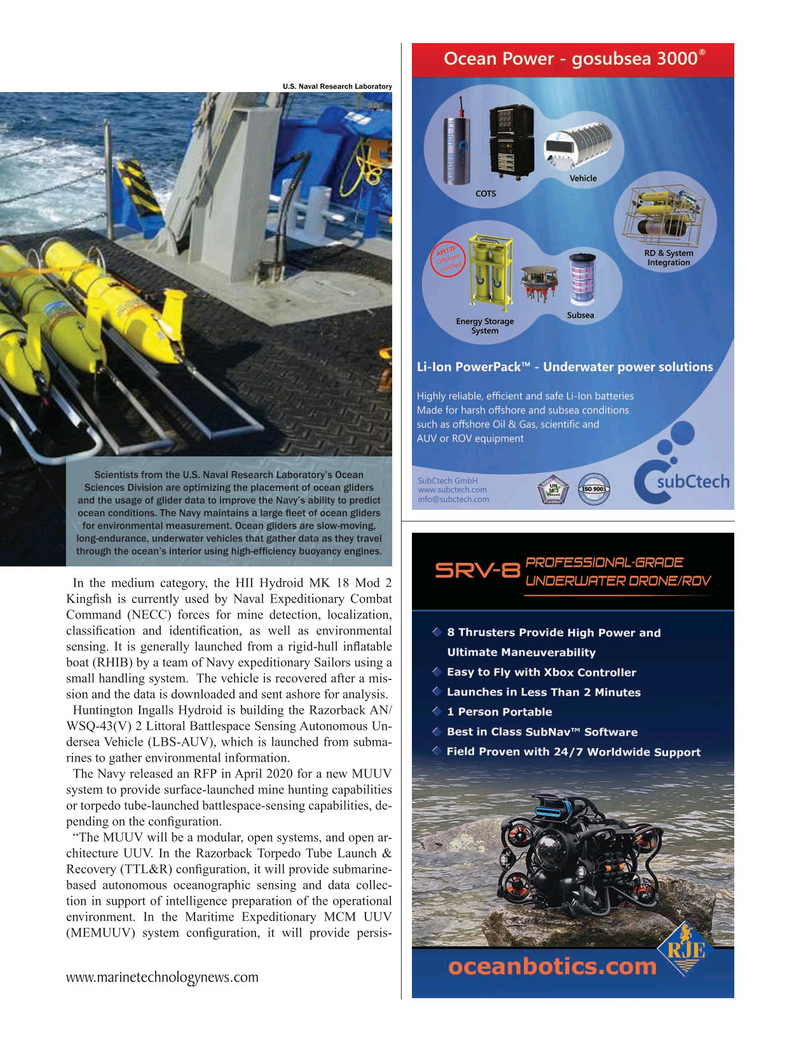
Page 43: of Marine Technology Magazine (January 2021)
Underwater Vehicle Annual
Read this page in Pdf, Flash or Html5 edition of January 2021 Marine Technology Magazine
U.S. Naval Research Laboratory
Scientists from the U.S. Naval Research Laboratory’s Ocean
Sciences Division are optimizing the placement of ocean gliders and the usage of glider data to improve the Navy’s ability to predict ocean conditions. The Navy maintains a large ? eet of ocean gliders for environmental measurement. Ocean gliders are slow-moving, long-endurance, underwater vehicles that gather data as they travel through the ocean’s interior using high-ef? ciency buoyancy engines.
In the medium category, the HII Hydroid MK 18 Mod 2
King? sh is currently used by Naval Expeditionary Combat
Command (NECC) forces for mine detection, localization, classi? cation and identi? cation, as well as environmental sensing. It is generally launched from a rigid-hull in? atable boat (RHIB) by a team of Navy expeditionary Sailors using a small handling system. The vehicle is recovered after a mis- sion and the data is downloaded and sent ashore for analysis.
Huntington Ingalls Hydroid is building the Razorback AN/
WSQ-43(V) 2 Littoral Battlespace Sensing Autonomous Un- dersea Vehicle (LBS-AUV), which is launched from subma- rines to gather environmental information.
The Navy released an RFP in April 2020 for a new MUUV system to provide surface-launched mine hunting capabilities or torpedo tube-launched battlespace-sensing capabilities, de- pending on the con? guration.
“The MUUV will be a modular, open systems, and open ar- chitecture UUV. In the Razorback Torpedo Tube Launch &
Recovery (TTL&R) con? guration, it will provide submarine- based autonomous oceanographic sensing and data collec- tion in support of intelligence preparation of the operational environment. In the Maritime Expeditionary MCM UUV (MEMUUV) system con? guration, it will provide persis- www.marinetechnologynews.com
MTR #1 (34-49).indd 43 1/25/2021 8:43:27 AM

 42
42

 44
44
